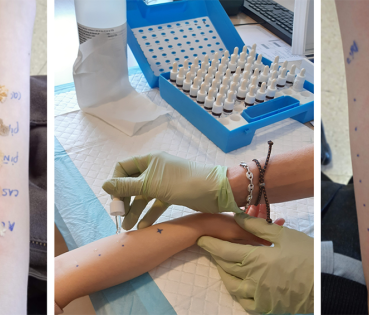
Signs to show whether you are a helicopter parent
Overprotecting children can end up being counterproductive and make them not very self-sufficient and frightened. These are the risks of acting as helicopter parents.
More than once, you surely will have seen a parent running after their child to make sure they finish their sandwich or a mother becoming involved in a conflict with a classmate. And how many teenagers don’t have the chance to get their school bags ready because this has already been done? These are typical behaviour patterns of so-called helicopter parents, a term that appeared over a decade ago in the book You are not special by the teacher David McCullough.
It is clear that being a parent is not easy and that, from the moment the children are born, the adults have more worries and fears. Learning to live with them and not passing them on to the children is essential to help with their growth, because otherwise, the children would be overprotected. But, why has this trend appeared now? Anxiety, insecurity and a lack of time are amongst the main ‘guilty’ parties for the increase in this kind of parental control.
Overprotecting is disabling
“Although at times it is difficult to believe it, overprotecting our children is not good for them – or for the parents, but rather it is a synonym of disabling them, according to Enric Soler, an associate professor for Psychology and Educational Sciences Studies at the Universitat Oberta de Catalunya (UOC). These helicopter parents love a great deal, “but they behave in an excessively controlling way,” the educational psychologist Sylvie Pérez explains, a professor in Psychology and Educational Sciences Studies at the UOC. She believes that this overprotection shows “a great need for permanent control.” And it appears in all environments. “If something goes wrong, the teacher must be changed. If the child doesn’t manage to do their homework, it means that the work has been set badly,” she indicates.
Conversely, it is essential for children to learn to manage conflicts, sort out problems and seek out solutions for themselves. “We cannot expect a child to grow up healthily without allowing them to be wrong, face up to challenges or situations that are more painful for the parents than for the child themselves,” Soler adds.
Being a child of helicopter parents
Acting as helicopter parents, in the long-term, marks the character of the children and the fact is that, over time, they become people who are dependent and frightened. Helicopter parents are, according to Enric Soler, “factories of useless children” who manage to make children into infants and slow down their development. This is translated into the fact that in the future they will have problems when making decisions or facing up to conflicts.
Finally, this extreme protection brings a high level of intolerance to frustration along with it. Frustration which, in the opinion of both experts, is beneficial. “If we constantly prevent them from doing things and these coming out badly because we haven’t helped them, they will not become self-sufficient,” Sylvie Pérez comments.




